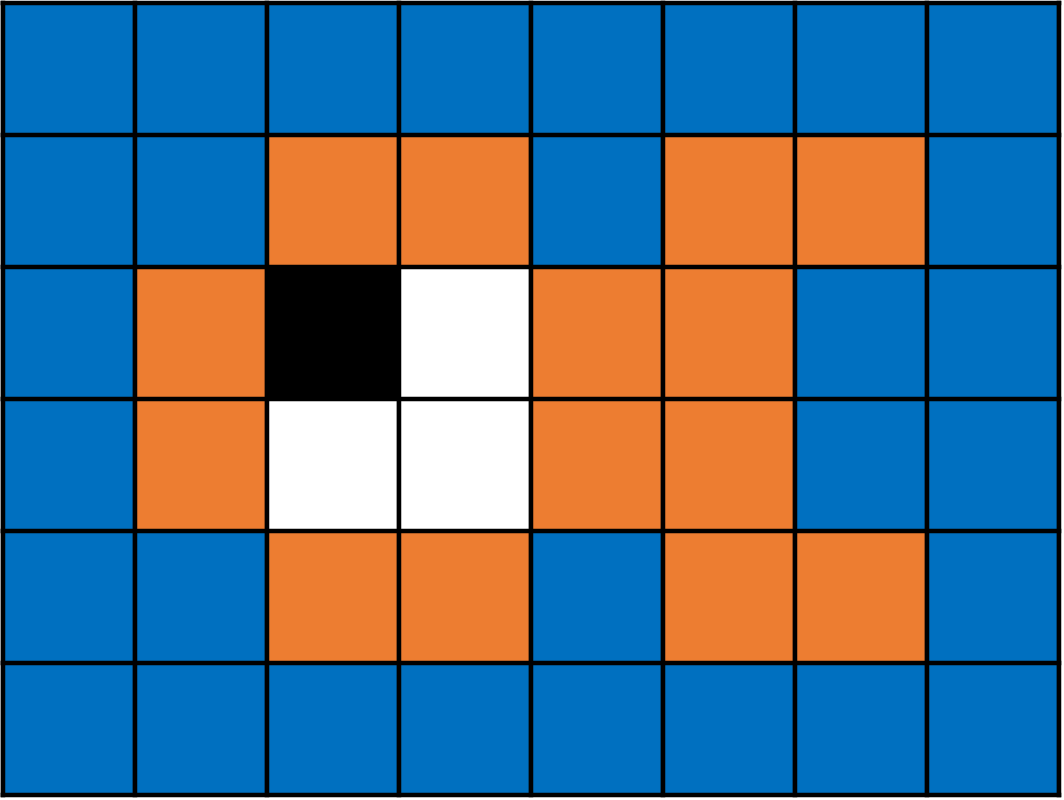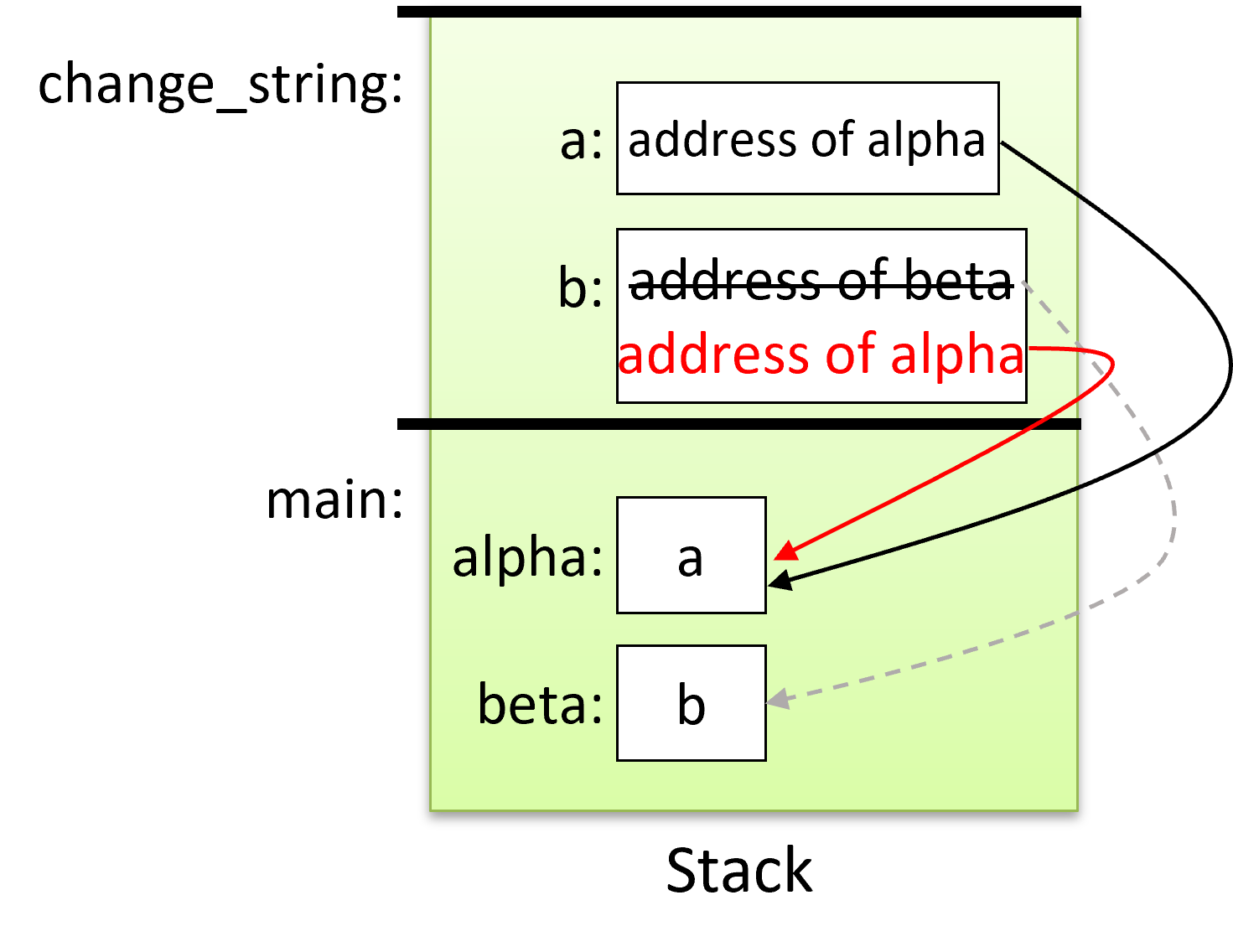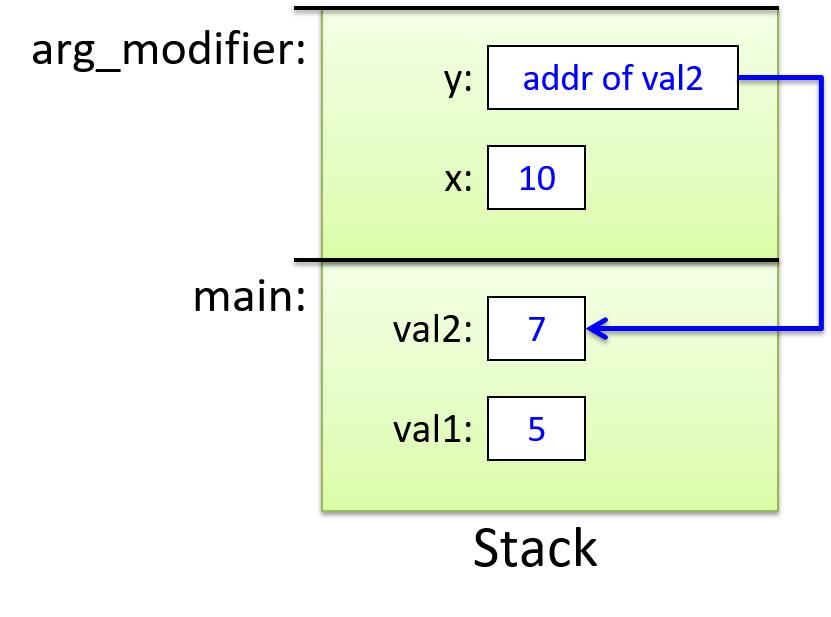Exercise 2.3.1. Pointers.
Consider the following snippet of code:
int x, y, *z;
x = 1;
y = x * 2;
z = &x;
x = y * 2;
List the values of the following expressions after executing the statements above.
x is
y is
*z is
Hint.
Draw pictures of variables and their values as you trace through the execution of each statement.



